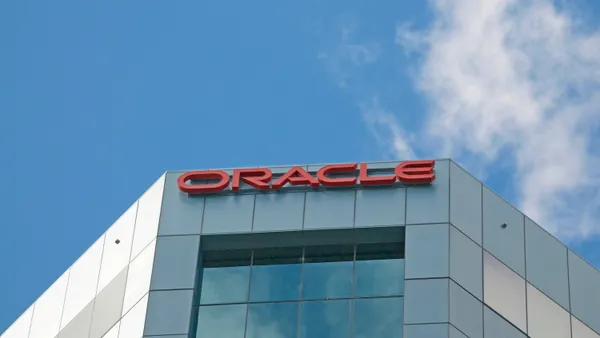Dive Brief:
- Supermarket chain Albertsons signed a three-year cloud deal with Microsoft, making Azure its preferred public cloud, according to Anuj Dhanda, CIO of Albertsons, during an interview with CNBC.
- Albertsons employees are signing up with the Microsoft 365 bundle in conjunction with using Azure. Additionally, the grocer wants to leverage Microsoft's artificial intelligence tools to co-create cashierless systems, according to the report.
- Amazon's competitive growth has helped accelerate Albertsons' modernization efforts, according to Dhanda. "We wouldn't want to develop the technology as much as Amazon would do, but we would say, 'How do we deploy the technology, how do we leverage it?' "
Dive Insight:
Amazon's 2017 acquisition of Whole Foods has pushed more grocers toward Azure, but grocers are still mindful of their competitors' technical strategies.
Before Albertsons confirmed its partnership with Microsoft, the grocer reported strong Q3 2018 revenue growth, which CEO Jim Donald credits an improving omnichannel experience for.
In October, Albertsons deployed its online marketplace with eyes set on selling about 100,000 products. The company also announced a pilot program for robots to fill shopping carts instead of employees for online orders.
Albertsons' modernization efforts come as Microsoft continues to scoop up other grocery cloud customers like Kroger, Walmart and online grocers like Fresh Direct.
Kroger and Microsoft are partnered on a number of initiatives powered by Azure, including a collaboration on a commercialized retail as a service product open to the rest of the industry after initial piloting done at Kroger.
Microsoft is looking to benefit from Kroger's grocery expertise to shape Azure and Azure AI for other global retailers who use the products.
As Microsoft continues to shape its offerings to accommodate specific industries like grocery and retail, the other two leading cloud providers, Amazon and Google, have a battle of perception to overcome.
Amazon and Google having growing presences outside of their cloud businesses. Though their growth strategies are impressive, the companies are unintentionally scaring off potential customers.
"It's becoming an intermediary for data, we do not do that," said Alysa Taylor, Microsoft corporate VP of Business Applications and Industry, in an interview with CIO Dive earlier this month. "Both Google and AWS do that."
Amazon's retail business and Google's advertising business are working against the two companies' cloud businesses, said Taylor. Alternatively, Microsoft doesn't have that perceived conflict of interest as its primary identifier is just "tech company."














